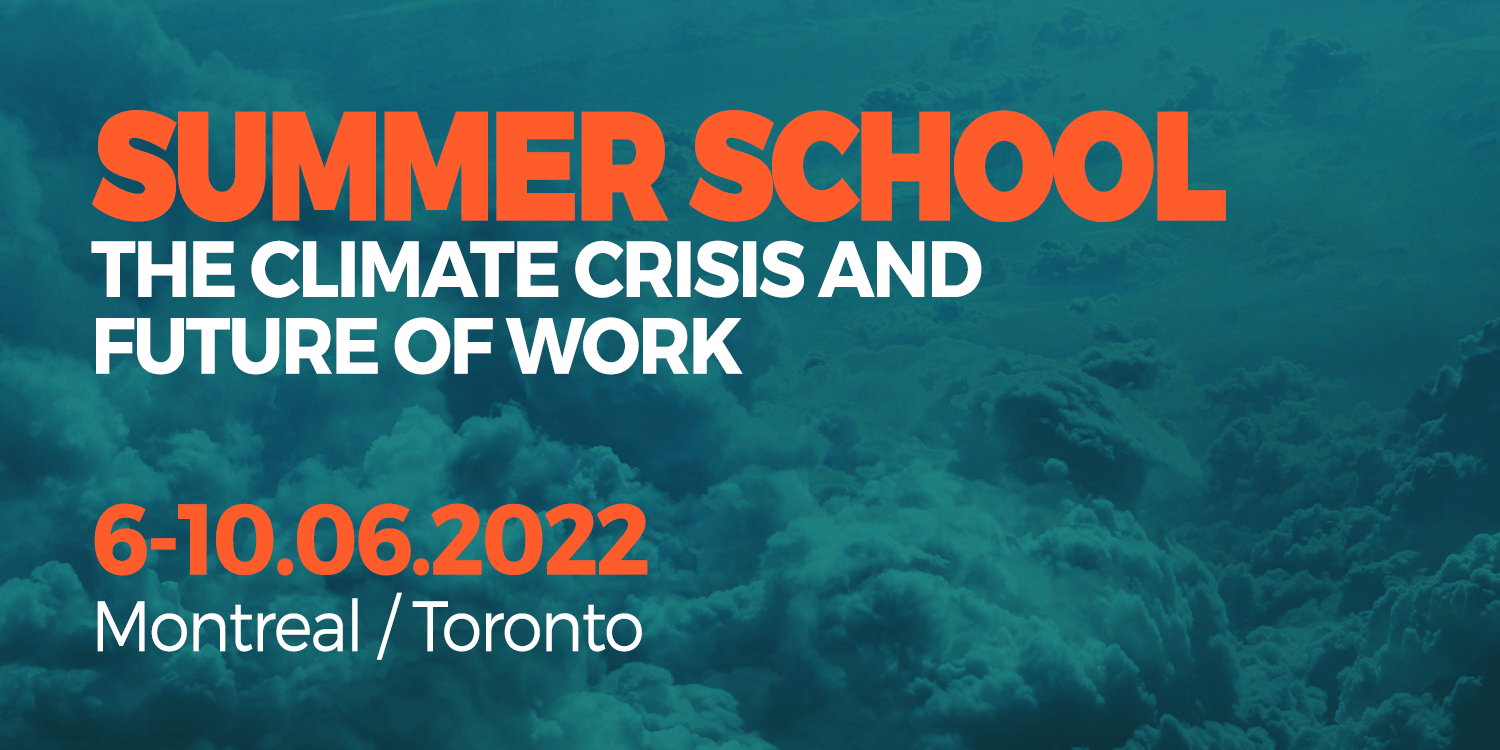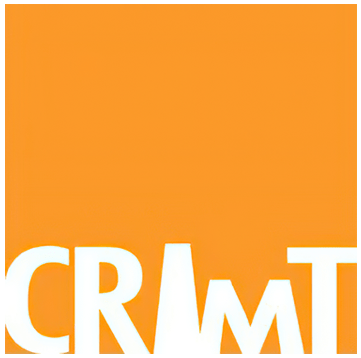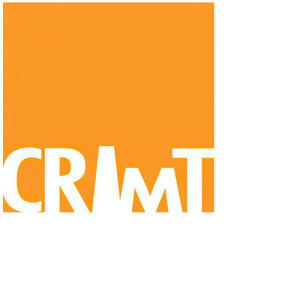
Climate change represents an epochal change, exerting multiple disruptive effects on economic activity, jobs, human health and well-being in Canada as around the world. At the same time, energy transitions and decarbonization strategies require significant adjustments throughout the economy and society.
Yet, the world of work appears ill-prepared to address these challenges. Relevant curricula in the institutions of higher learning preparing new generations for their entry in the world of are largely absent. Institutions, organizations and actors negotiating the transition in their workplaces currently lack the understanding, policies, tools, and practical exemplars for addressing this epochal change.
THE CLIMATE CRISIS AND THE FUTURE OF WORK SUMMER SCHOOL
The Climate Crisis and the Future of Work Summer School aims to play a part in helping to address these knowledge and capability gaps. The 2021 Annual Assembly and Executive of the Canadian Industrial Relations Association (CIRA-ACRI) resolved that climate change is a top priority in the association’s engagement with the world of work.
Subsequently, CIRA-ACRI established a unique interuniversity partnership between Blue Green Ideas (a consultancy dealing with the challenges of climate change), the Centre for Industrial Relations and Human Resources at the University of Toronto (CIRHR-UoT), the Interuniversity Research Centre on Globalization and Work (CRIMT) and its Institutional Experimentation for Better Work Partnership Project and the School of Industrial Relations at the Université de Montréal (ÉRIUM) to address climate issues. This Summer School outreach initiative is the result of this collaboration.
A BILINGUAL EVENT, HELD SIMULTANEOUSLY IN MONTREAL AND TORONTO
The activity entails a week-long Summer School on the Climate Crisis and the Future of Work/La crise climatique et l’avenir du travail (June 6-10 2022), taking place simultaneously in two languages (French and English) at the Université de Montréal and the University of Toronto.
It will bring together key researchers, educators, and students with practitioners in labour, business, and policymaking to address issues related to building a fair economy and a sustainable environment. Participants will also address key issues of social dialogue and how to achieve better work, a robust democracy, and a just society. Thereafter, the initiative will facilitate continuing exchange between the research, practitioner, climate innovator and policy communities through a series of webinars around core themes explored in the Summer School.
PARTIAL LIST OF FEATURED SPEAKERS AND PANELISTS

Caroline Brouillette (Climate Action Network Canada – Réseau action climat Canada), Angela Carter (University of Waterloo), Seth Klein (Climate Emergency Unit), Patrick Rondeau (FTQ), Lara Skinner (Workers Institute Cornell University), Jim Stanford (Centre for Future Work), Jason Walsh (Blue Green Alliance) and many others will be discussing their Climate Jobs/Just Transition/Re-skilling/Labour-Environmental initiatives.
COORDINATING COMMITTEE
Climate Crisis and Future of Work Summer School
Blue-Green Ideas: John Peters
Canadian Industrial Relations Association (CIRA-ACRI): Jason Foster
Centre for Industrial Relations and Human Resources (CIRHR), University of Toronto: Carol Canzano-Hamala, Jennifer M. Harmer, Rafael Gomez, John Peters*, Tanya Pitel, Frank Reid
Interuniversity Research Centre on Globalization and Work (CRIMT): Soledad Cardona-Maldonado, Audrey B. Fortier, Francine Jacques, Gregor Murray, John Peters, Nicolas Roby
School of Industrial Relations (ERI), Université de Montréal: Soledad Cardona-Maldonado, Audrey B. Fortier, Mélanie Laroche*, Ian MacDonald*, Jonathan Michaud, Gregor Murray, Vincent Rousseau, Nicolas Roby



